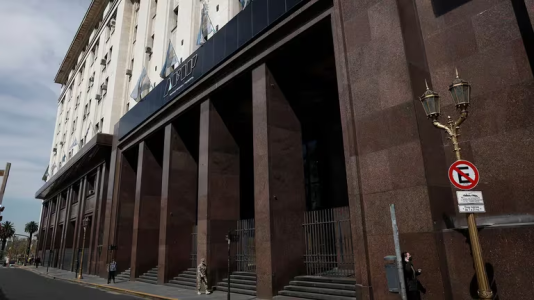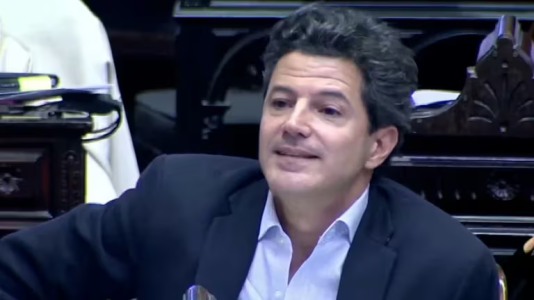All the Answers
Well-known member
“Not even in Norway”: they warn that the extension of the PAIS Tax brings the tax pressure for investors above 50% - Infobae

Source:

“Ni en Noruega”: advierten que la extensión del Impuesto PAIS lleva la presión impositiva para inversores por sobre 50%
Luciano Laspina, diputado nacional, se quejó porque al aplicar el tributo a dividendos y utilidades las inversiones extranjeras en el país deberán pagar más de 50% de impuestos por sus resultados
May 07, 2024
Luciano Laspina, national deputy, complained that applying the tax to dividends and profits discourages foreign investment. Other specialists followed him

Profits and dividends will pay 17.5% PAIS Tax (Photo: AFIP)
The extension of the PAIS Tax to operations involving the transfer of dividends and profits generated contradictory signals among specialists and businessmen, who on the one hand fear the perpetuation of a tax that is typical of exchange obstacles and at the same time generates a tax burden that exceeds the 50 percent . The signal was viewed with concern and as a potential disincentive to investments in the country.
Yesterday, the Government established through a decree that transfers of profits and payments of dividends to non-resident investors in the country will be subject to the PAIS Tax. The tax will also weigh on those who choose to make these payments through Bopreal, the Central Bank title designed to manage delayed payments of imports that in its third series finds little interest and since last week it was incorporated into profits and dividends in an attempt to capture more takers.
For these operations, Economía set a rate of 17.5%, the same rate that importers pay for the exchange operations necessary to obtain foreign currency with which to make purchases abroad.

Luciano Laspina, economist and national deputy
Last week the Central Bank enabled the payment of dividends and transfer of profits through the placements of the Bopreal bond. The next tender for those papers is this week. The measure appeared to be an attempt to attract more subscribers, given the lack of interest from importers.
Attracting payments to non-resident shareholders makes sense: the stock of those payments that are blocked by the stocks and that are waiting for an opening of the market to begin to flow is estimated at more than USD 6,000 million. It's a similar situation to importers and moving them through a bond can save headaches on the day exchange controls are removed.
However, what raised doubts was the application of the PAIS Tax to these movements.
“The Government will apply the PAIS Tax to the transfer of dividends abroad. That is, a company that invested here will pay 35% of Profits plus 7% dividend distribution tax plus (new!) 17.5% COUNTRY tax. Final rate 60%. Not even in Norway!”, lamented the economist and national deputy for the PRO Luciano Laspina .
“The Government will apply the PAIS Tax to the transfer of dividends abroad. That is, a company that invested here will pay 35% of Profits plus 7% dividend distribution tax plus (new!) 17.5% COUNTRY tax. Final rate 50.13%. Not even in Norway!” (Laspina)
Later, in conversation with colleagues, the economist further adjusted his numbers. Since the money involved for 35% of Income Tax and another 7% for the distribution of dividends, the tax base for the PAIS Tax is the figure that remains after subtracting those taxes. That amount is what would finally reach the exchange market and, therefore, the total rate is 50.13 percent.
“What they were asking me about yesterday is that there is an extra tax pressure. It is a brutal rate of tax pressure, it is like paying $1,300 per dollar. The problem is also that as it is written, it gives broad powers to the Executive to modify the tax base and even the rate in the future. In principle, the PAIS Tax has an expiration date but it can be extended,” said Salvador Vitelli of Romano Group.

The Central Bank seeks to deactivate stocks of foreign currency demand that may hinder an eventual exit from the stocks (EFE)
“It doesn't leave me too calm that tax changes of this type are at the mercy of the executive,” he concluded.
Authorization is key given that there are several companies waiting for the moment to distribute dividends. Javier Casabal of Adcap Grupo Financiero anticipated that “several banks expressed their intention to pay dividends in this way and they already exceed USD 1,000 million,” according to communications from the entities to investors through the CNV. There would be four banks: BBVA, Santander, Grupo Financiero Galicia and Macro, he indicated.
Other specialists took the news more calmly, and even received it well.
“It is a greater tax burden, without a doubt. But this higher tax burden is temporary, because the Government is moving towards a unification of the exchange market. In any case, I see it as something positive because it once again allows the turn to the outside. “Whoever would like not to have that additional cost could wait for unification to make the transfer,” considered Sebastián Domínguez of SDC Asesores Tributarios.
“From the point of view that imports of goods and services pay the PAIS Tax, it was not imaginable that this tax would not be paid to turn around now,” he added.


